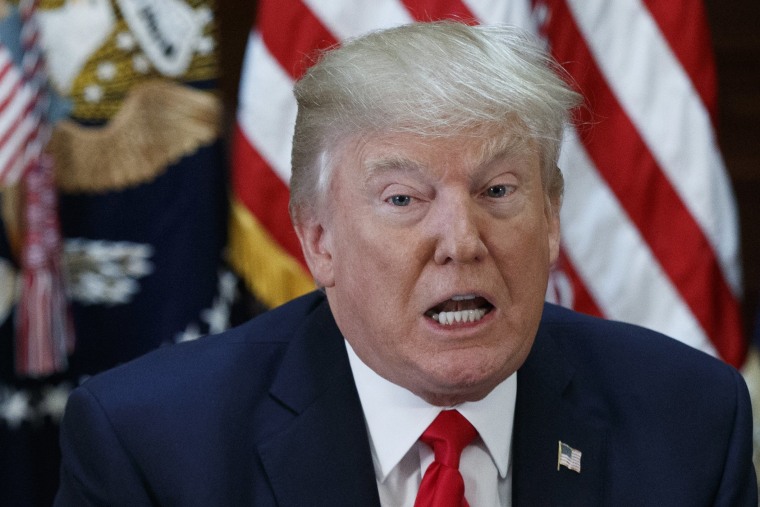No one likes to receive discouraging information that challenges his or her assumptions. It's a test of a person's intellectual integrity: confronted with evidence that conflicts with our preconceived ideas, do you ignore the evidence or think anew about your ideas?
When it comes to Donald Trump and his administration's approach to governing, the answer couldn't be much clearer.
It wasn't long after the president took office that the pattern first began. Rachel had an exclusive report in February, for example, on a leaked DHS Intelligence report with a striking finding: the basis for the president's Muslim ban was an unreliable way of preventing terrorism. Trump took that information, ignored it, and pursued his policy anyway.
This was not an isolated incident. The evidence shows ACA advertising is effective in getting Americans covered, but Trump World doesn't care. The evidence shows the Iran nuclear deal is working, but Trump World doesn't care. The evidence from the National Academy of Sciences, among others, shows the climate crisis is real, but Trump World doesn't care. And as the New York Times reported this week, the evidence shows welcoming refugees into the United States brings real benefits to the country, but Trump World doesn't care.
Trump administration officials, under pressure from the White House to provide a rationale for reducing the number of refugees allowed into the United States next year, rejected a study by the Department of Health and Human Services that found that refugees brought in $63 billion more in government revenues over the past decade than they cost.The draft report, which was obtained by The New York Times, contradicts a central argument made by advocates of deep cuts in refugee totals as President Trump faces an Oct. 1 deadline to decide on an allowable number.... Advocates of the program inside and outside the administration say refugees are a major benefit to the United States, paying more in taxes than they consume in public benefits, and filling jobs in service industries that others will not. But research documenting their fiscal upside -- prepared for a report mandated by Mr. Trump in a March presidential memorandum implementing his travel ban -- never made its way to the White House. Some of those proponents believe the report was suppressed.
Imagine that.
The Washington Post's Greg Sargent yesterday highlighted the "deep rot of bad faith" within the administration: "We've seen it again and again: The administration pushes a new policy. Independent institutions provide facts and empirical analyses that completely undercut that policy's stated rationale. Administration figures then ignore or suppress those facts. Or they push their own 'alternative facts,' while deriding the real facts as fake. Or they mount a sustained effort to delegitimize the institution that provided them."
Quite right. This is what happens when a president and his team start with the answer instead of the question. It might be ideologically satisfying for the president to start with the conclusion that makes him happy, and then have his team reverse-engineer the evidence to arrive at the "right" answer, but it's a terrible way to run the executive branch of a global superpower.
